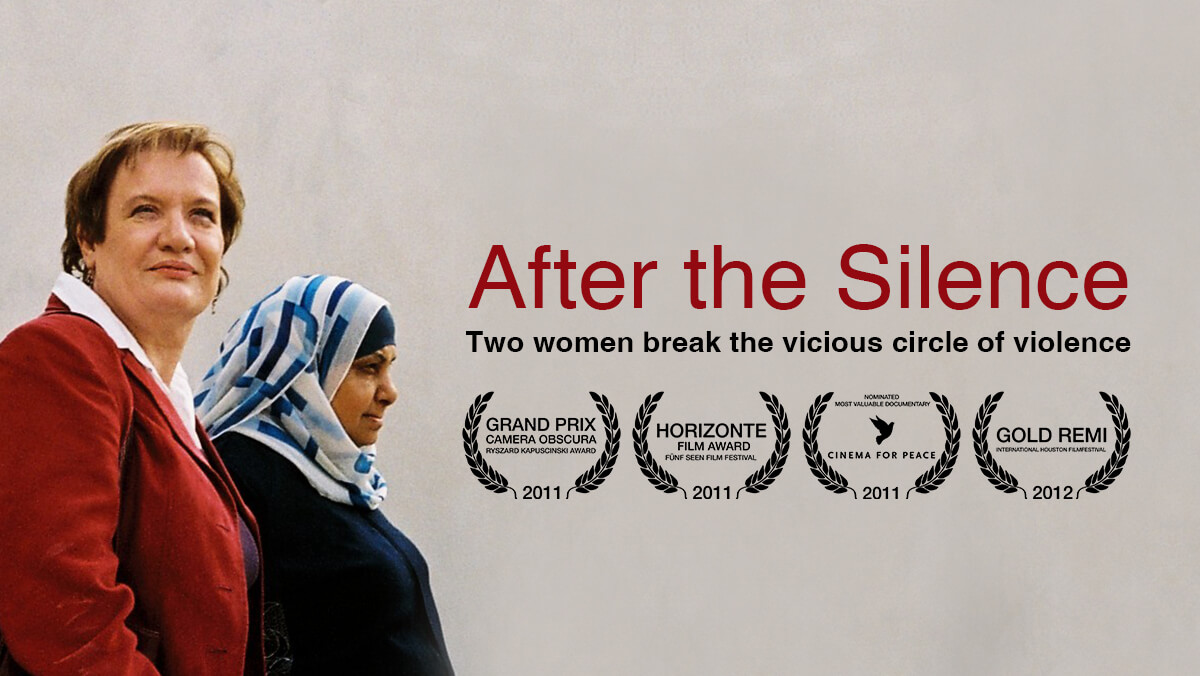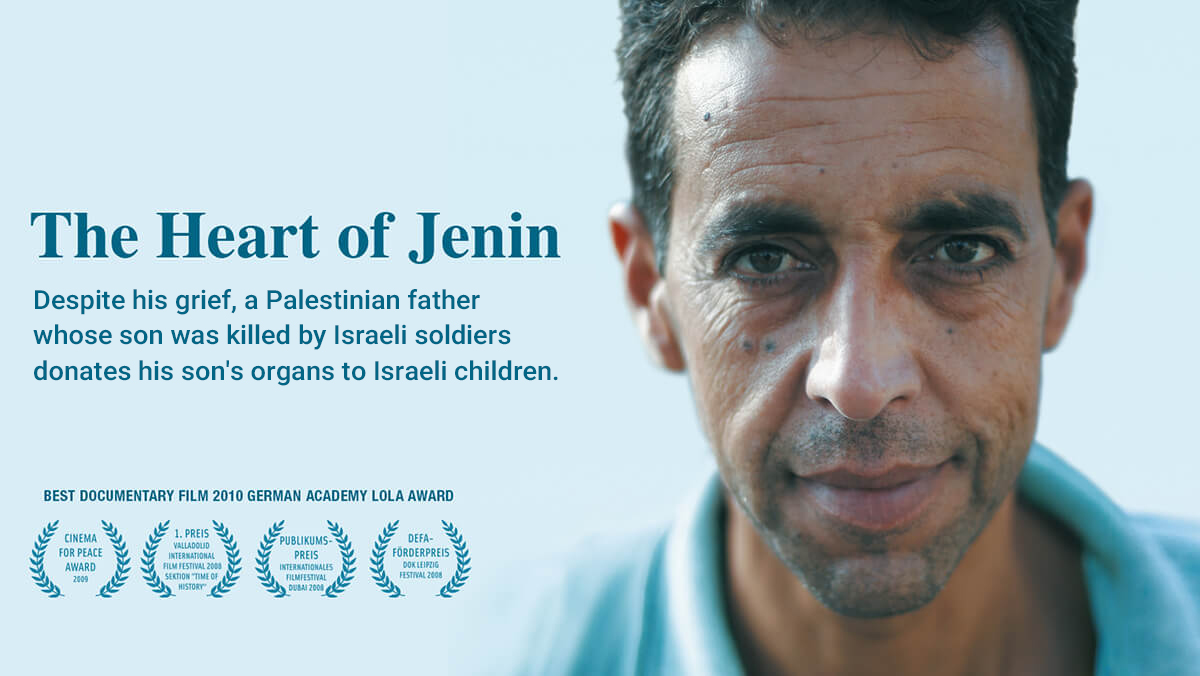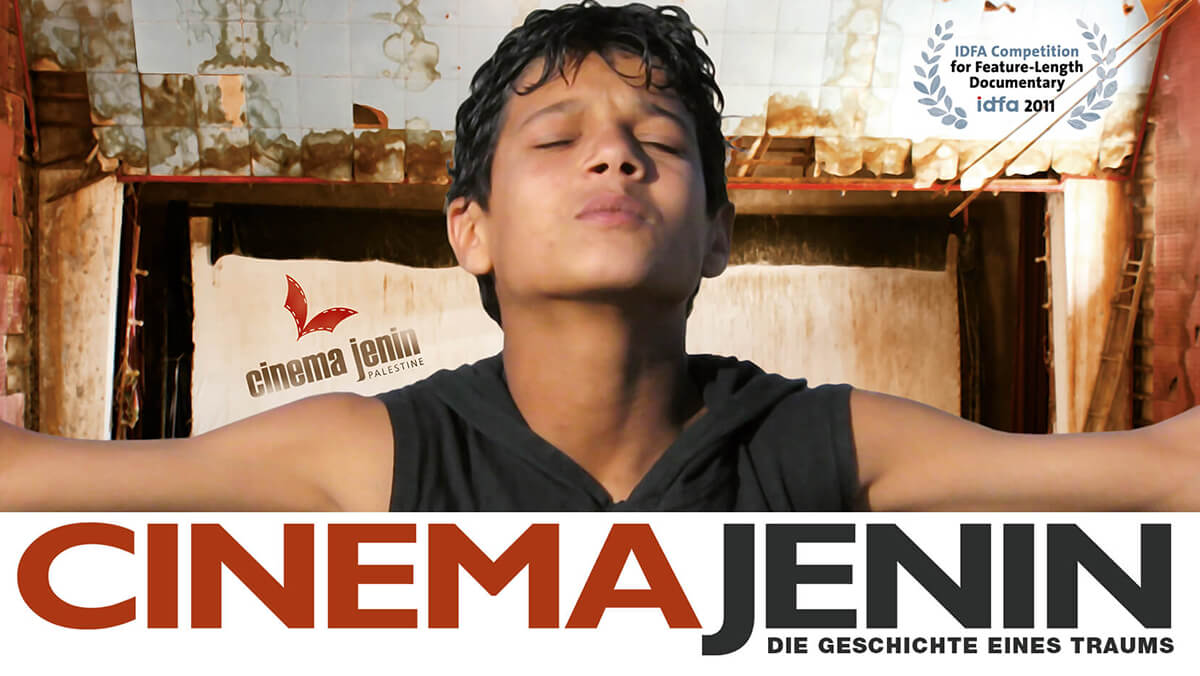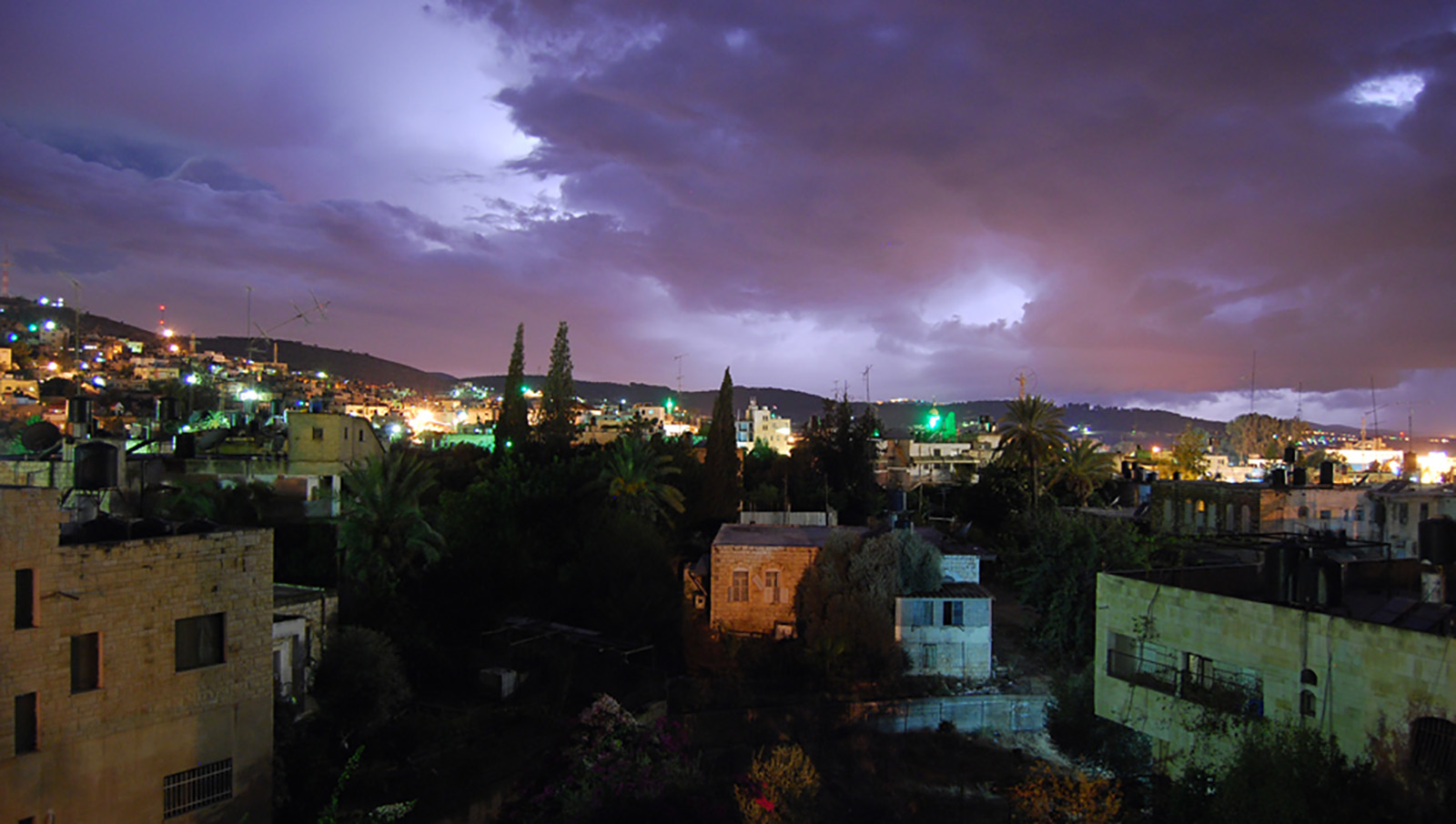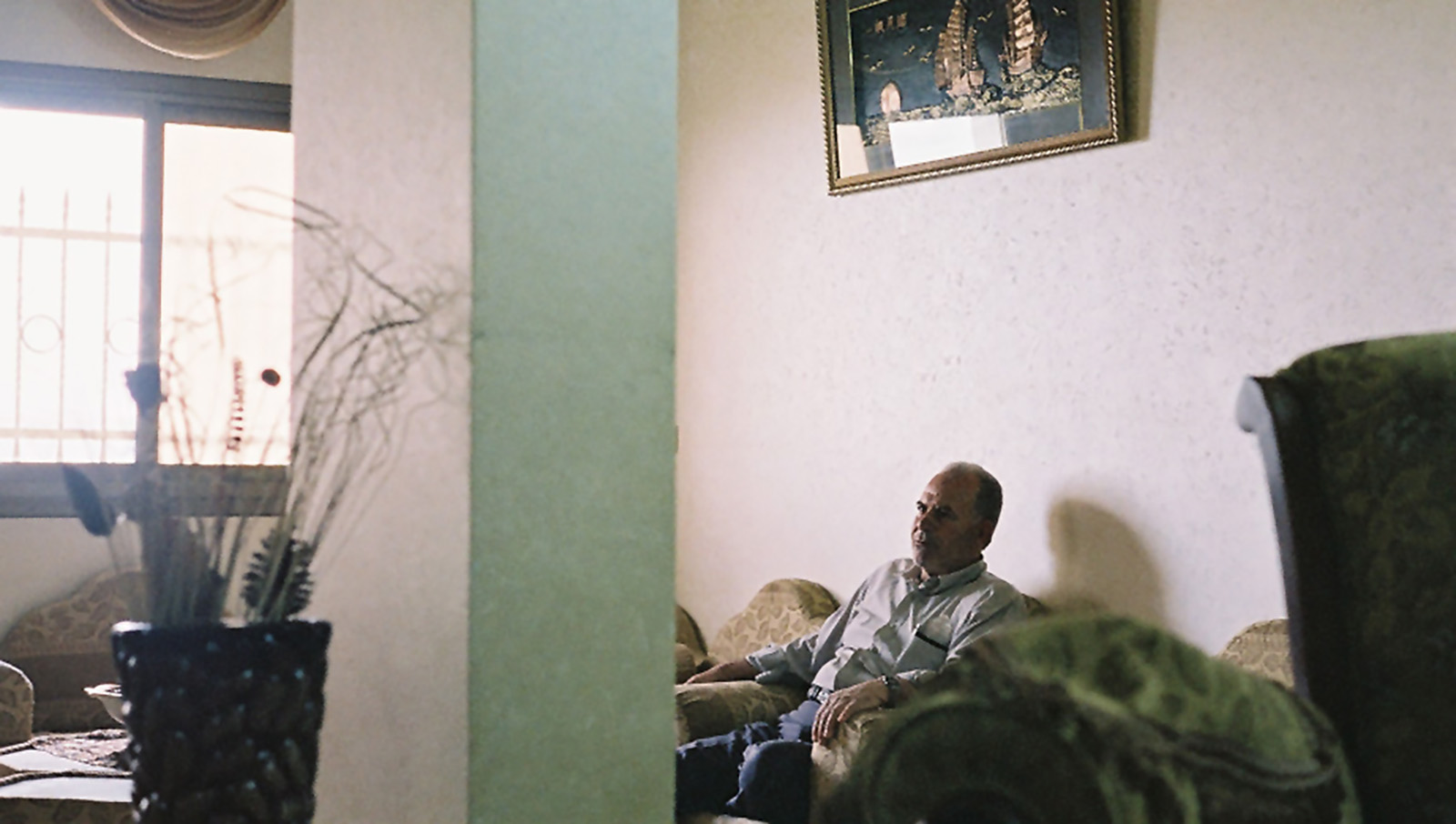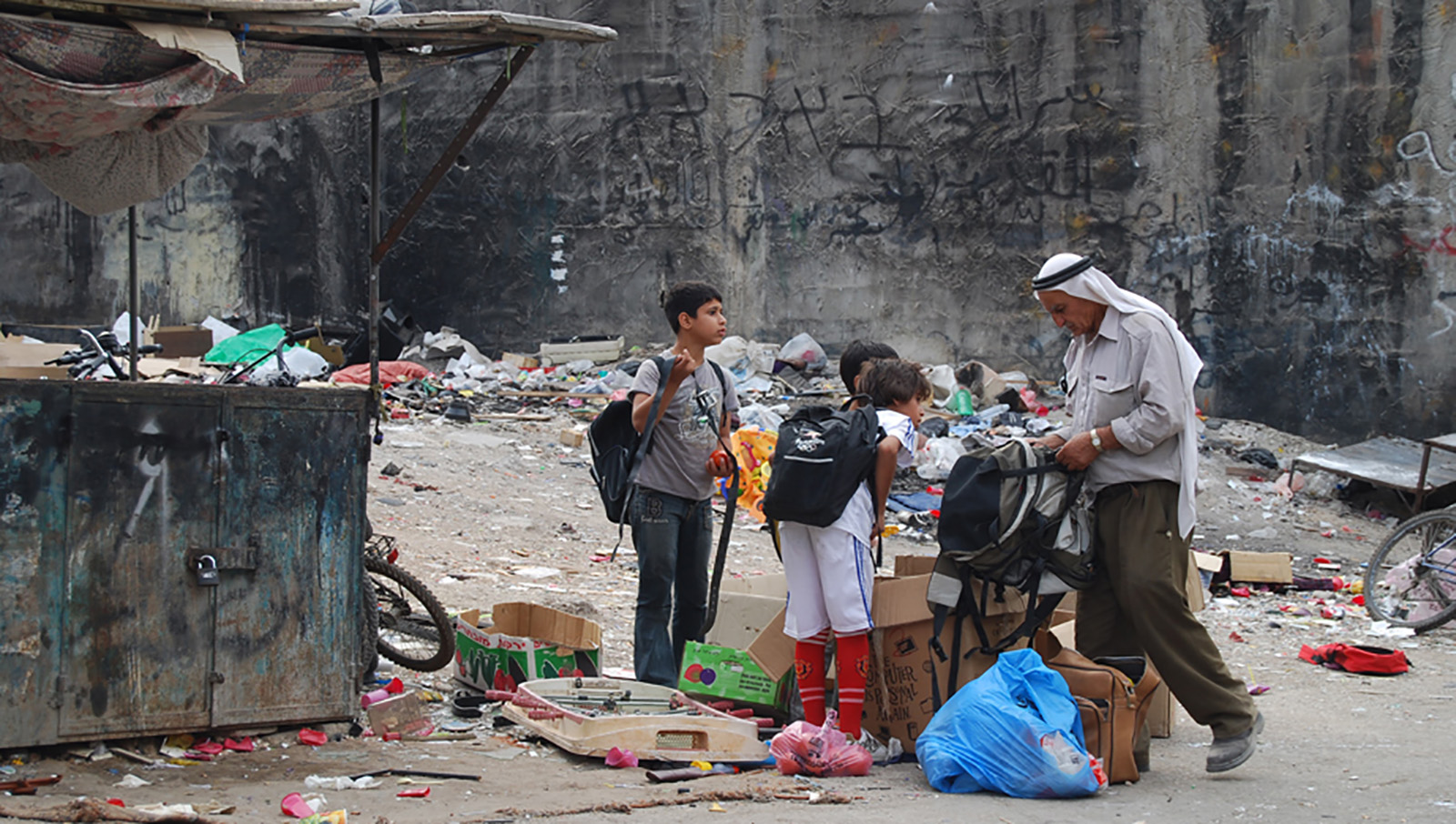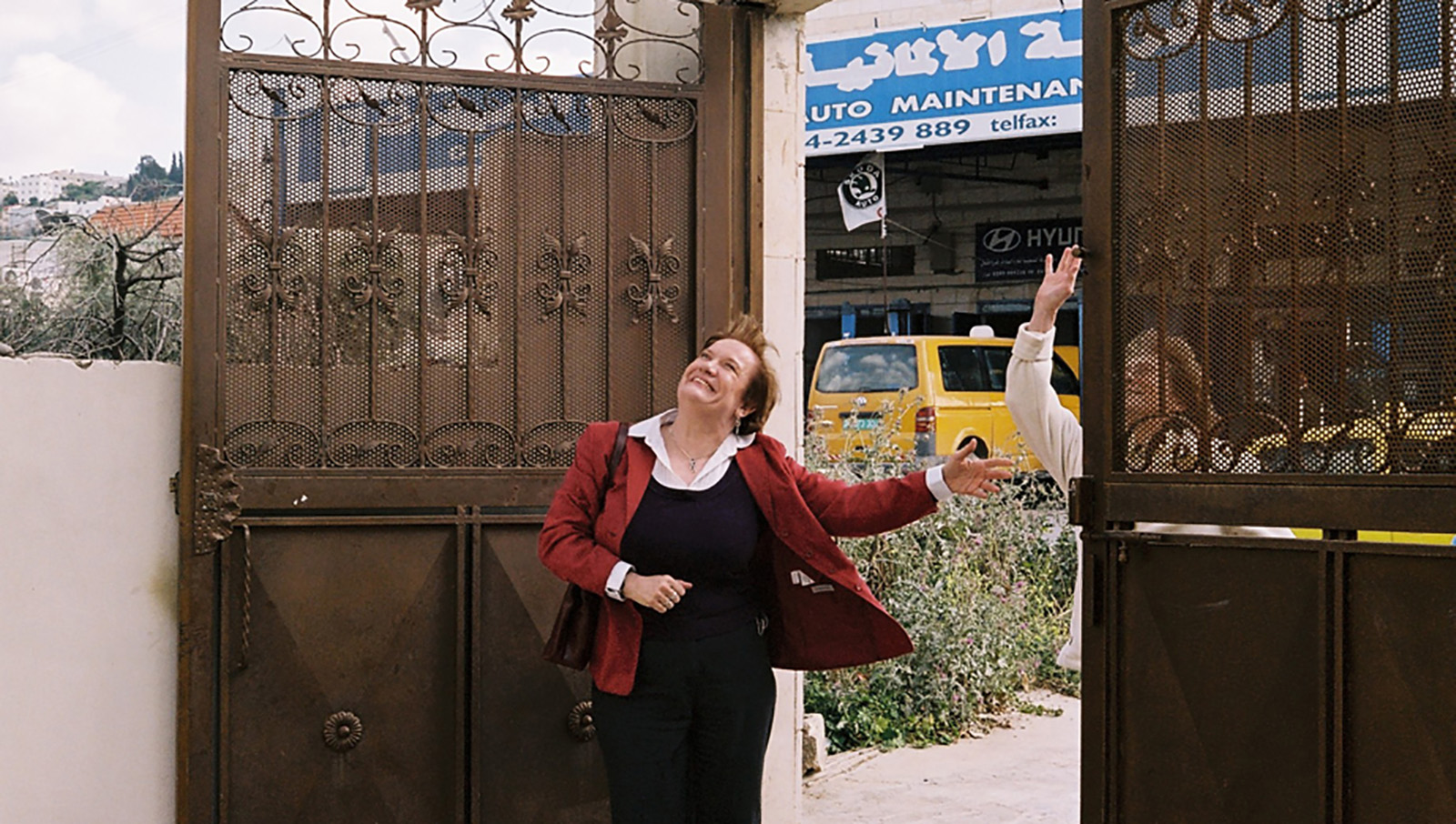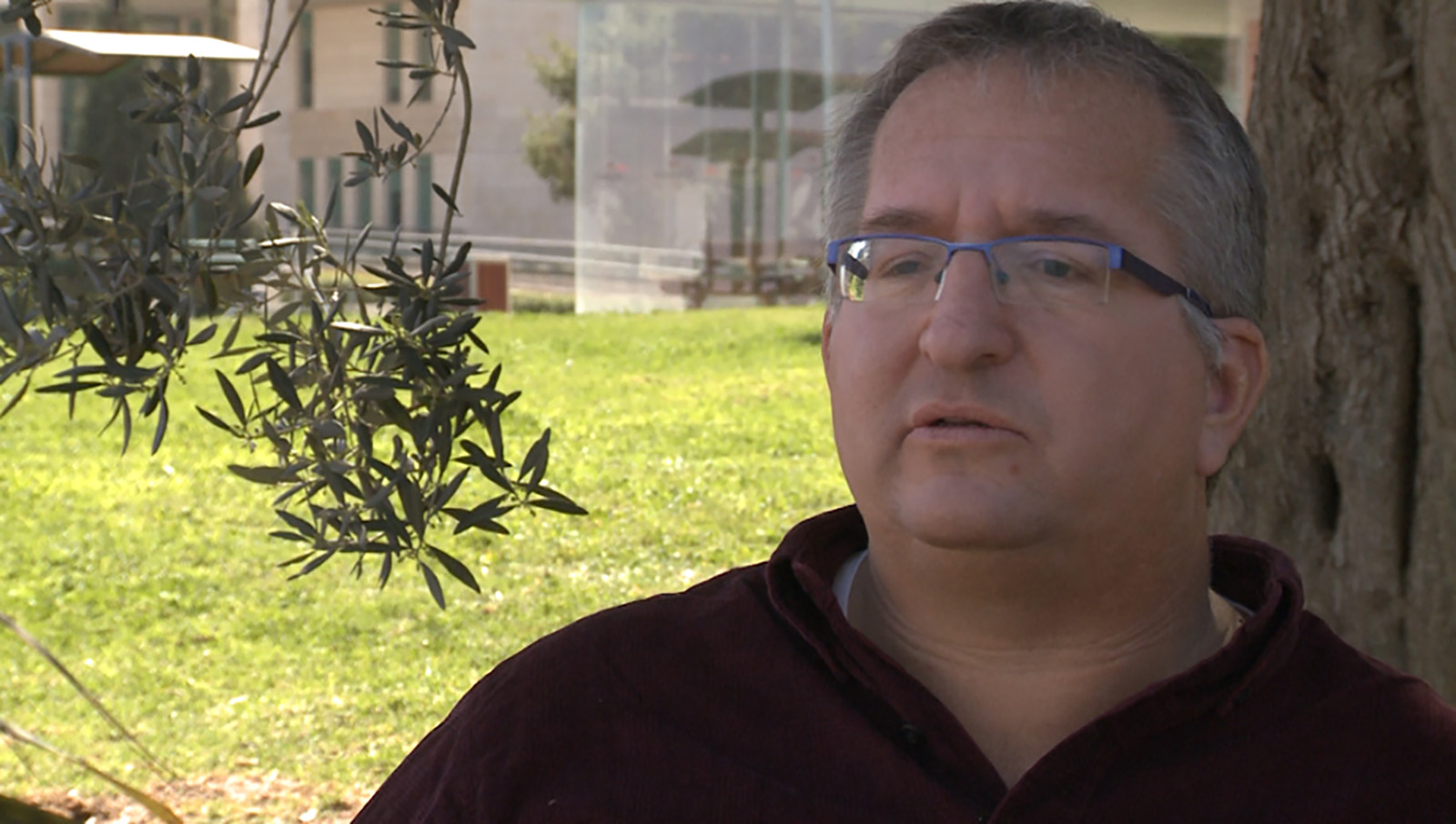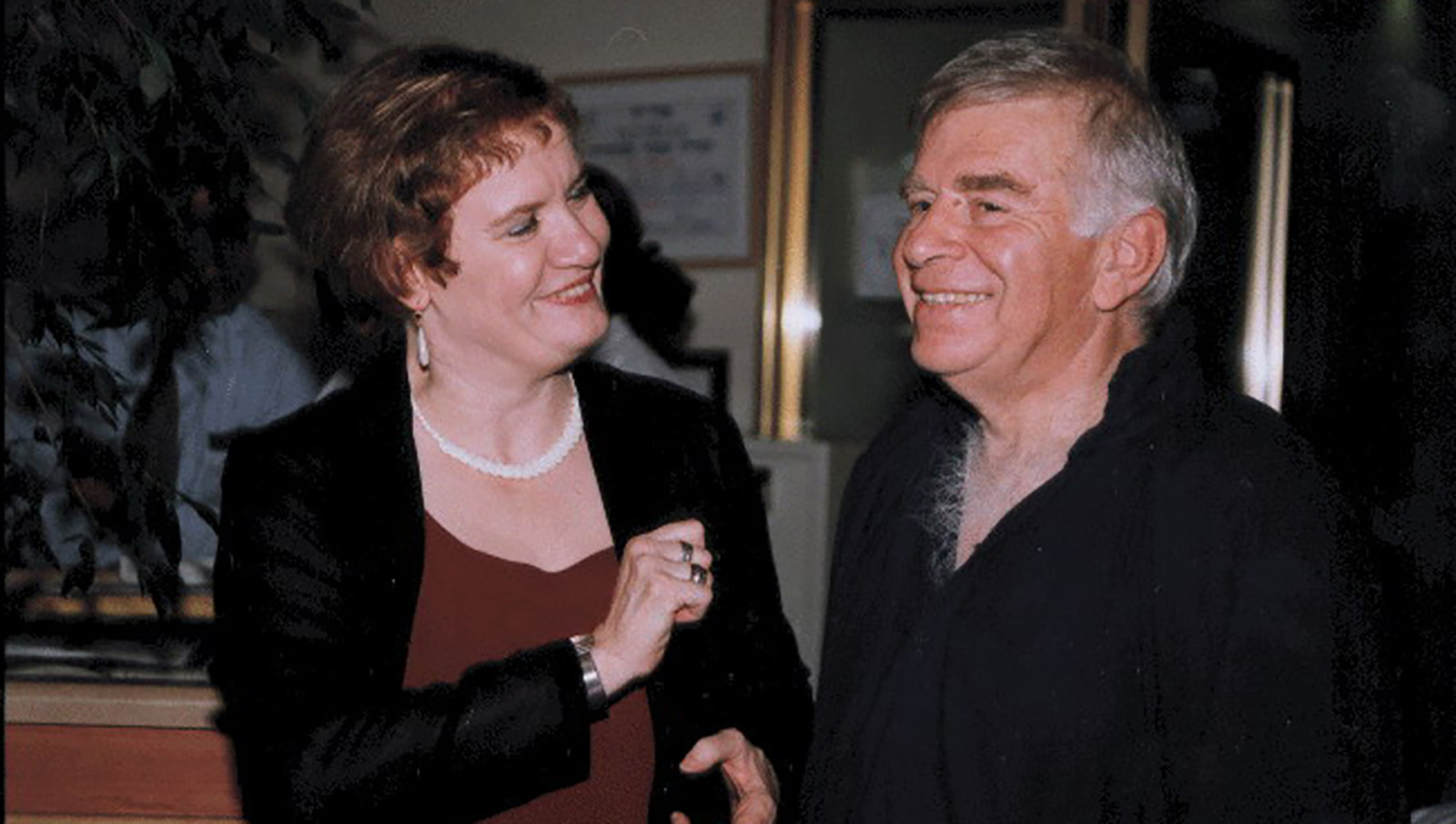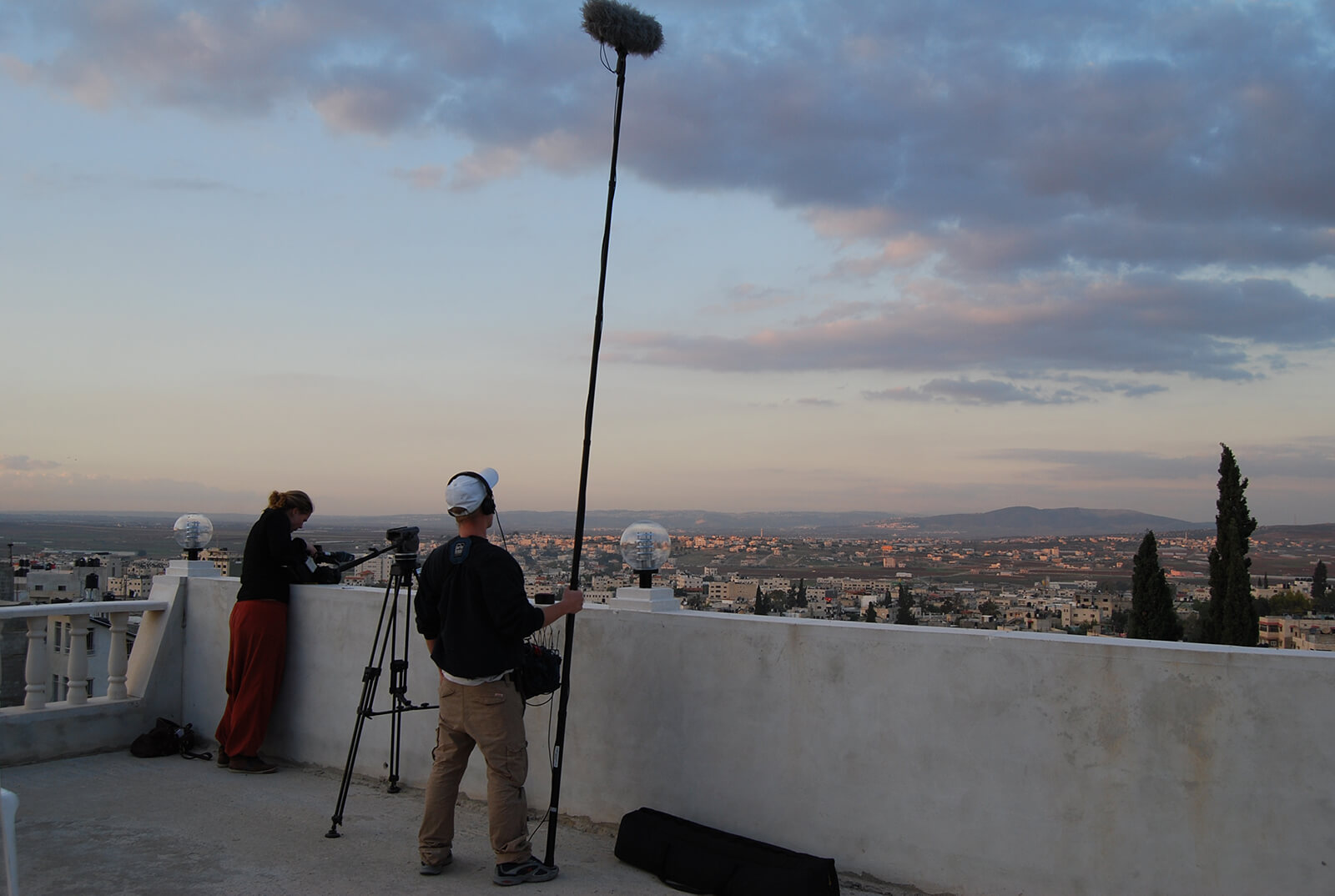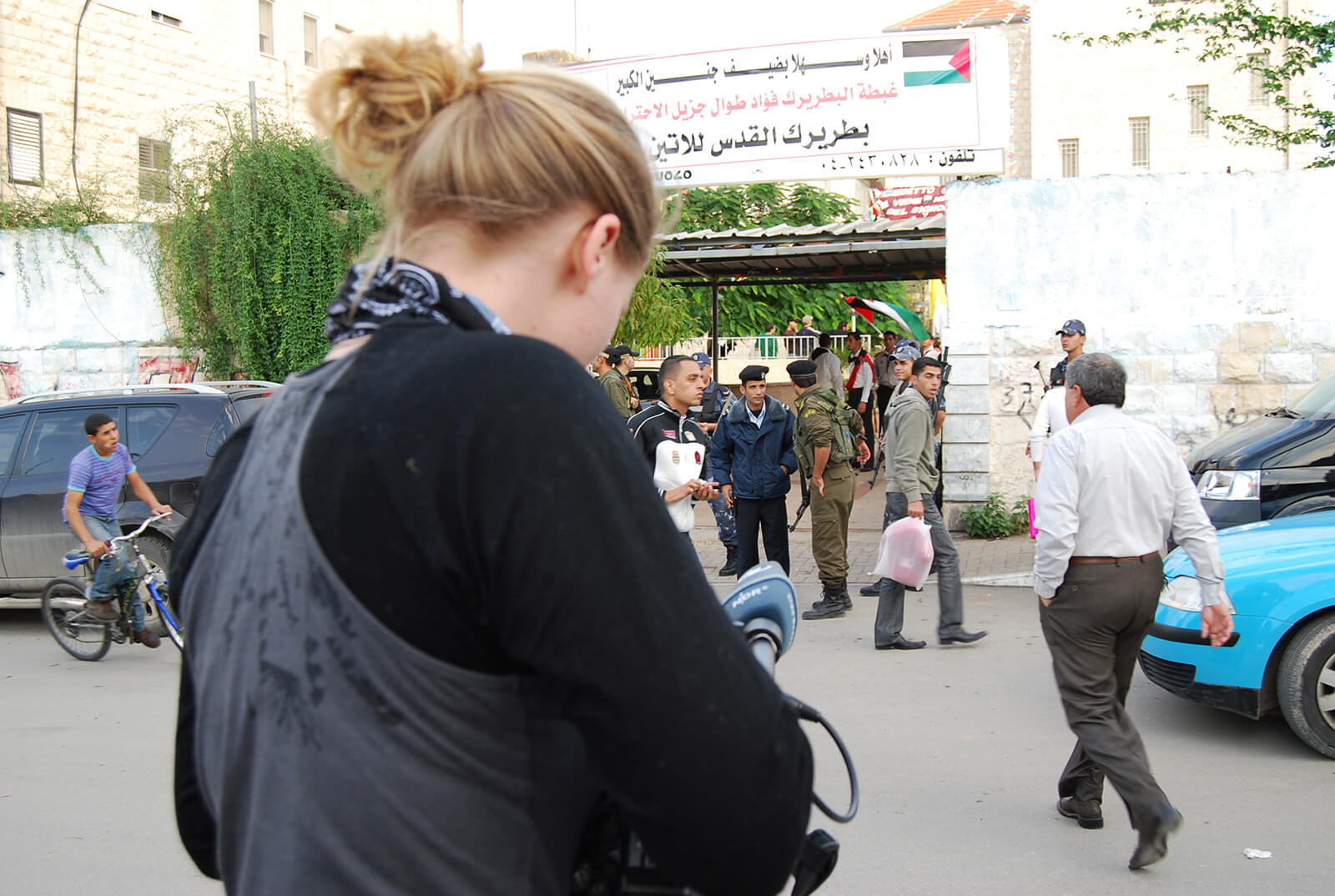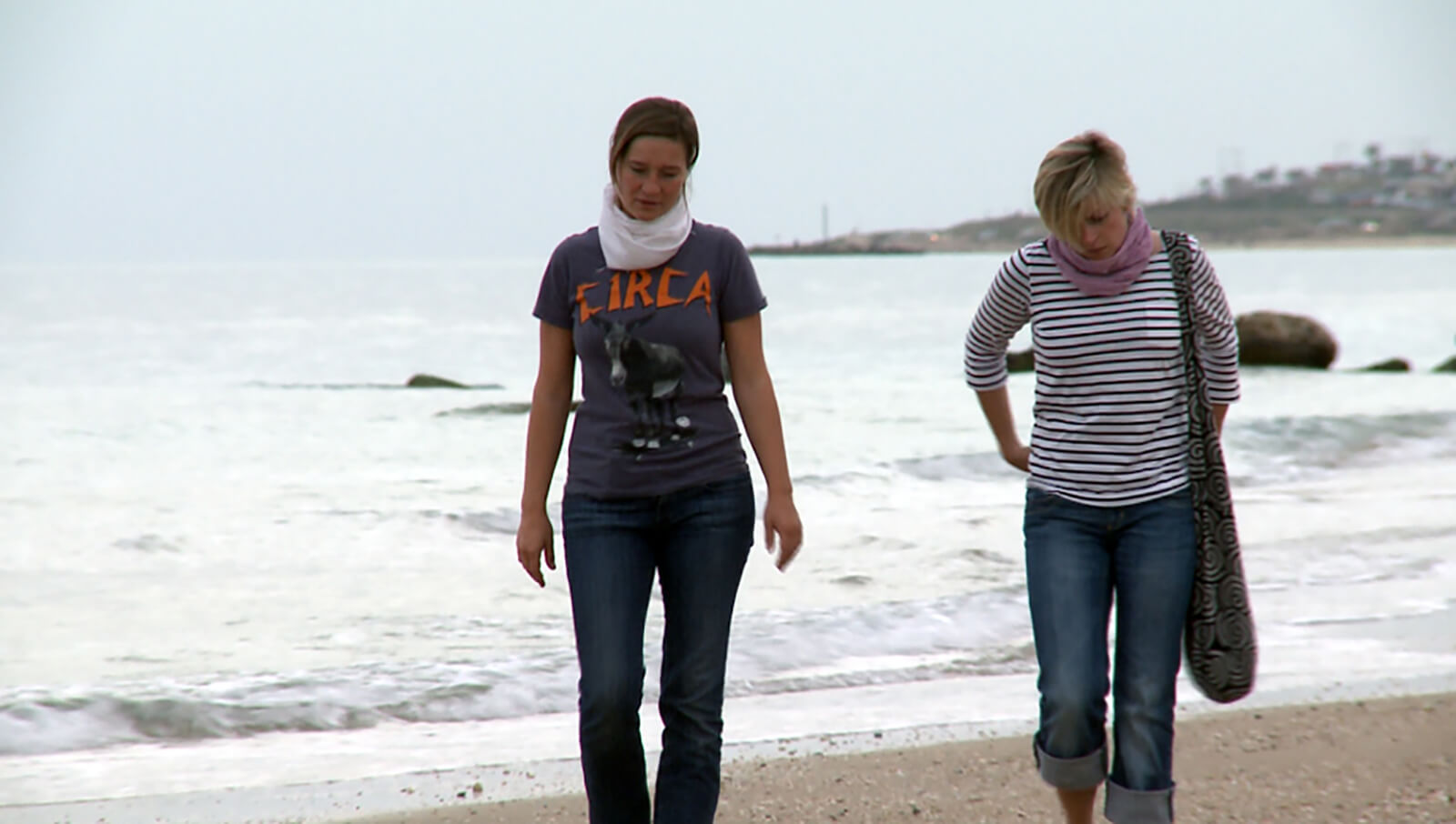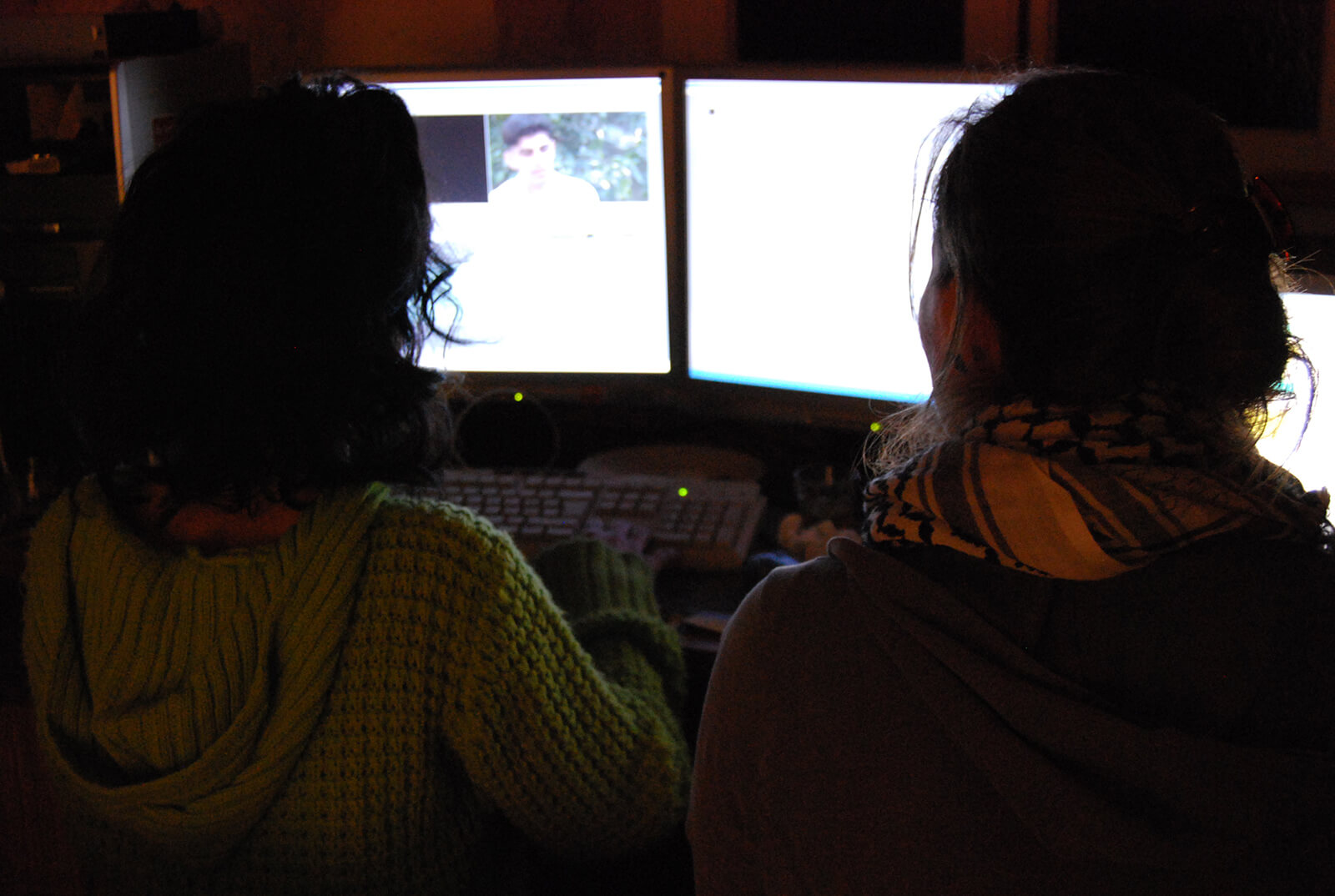Eight years after the attack two young filmmakers are trying to understand what seems unimaginable. Shadi‘s parents still seem to be in a state of shock. „We thought he was going to work just like every other day. He didn‘t even say goodbye,“ says Shadi‘s father with tears in his eyes. Yaël often uses the word „terrorist“ when she speaks of Shadi. And then – for the first time in her life – she is saying his name: „Shadi Tobassi“. It seems to be a part of the process she is going through in her search for inner freedom and a dialogue with the Tobassis: „Every person has a name,“ she says. But she cannot imagine looking him straight in the eyes. On the wall of the Tobassis‘ living room there is a poster-size photograph of Shadi. The thought that she would have to see him in this photo if she came to Jenin is unbearable for Yaël. But she still wants to take this step because her husband would have been the first one to encourage her to do so.
Yaël picks up the telephone receiver and dials the number of the Tobassi family. The phone rings. A male voice answers. „Shalom? Shalom, my name is Yaël.“ Yaël will go to Jenin in peace to break down the wall of silence.
We are asking Zakaria Tobassi, the perpetrator’s father, if the family suspected something when we met him for the second time. Two young, female filmmakers, inexperienced – not only in terms of film making but also in regard to the Arabic culture. The father suggests friendly that we should be wearing headscarves if we wanted to go to heaven. We nod and ask about the Why, the time before and after the attack, if the father noticed any changes in his son. He didn’t notice anything is the reply of the religious man.
A few days later our Palestinian producer Fakhri Hamad takes us aside. He is aggravated: “Did you really ask him if he knew about it? Do you even understand what this might mean for the whole family? Which consequences this could have if the father had known something? These are the kind of questions that arouse distrust. After all, you could be from the Mossad. “
At one point or another we stopped pondering this question. We don’t want having to explain why Shadi killed himself and 15 other people with him. The film is supposed to give an insight into the emotional world of the bereaved. We want to tell about what comes after, after death, after silence, after the shock. What happened to the relatives and what did the dead leave behind for them. Dov, the Israeli architect and peace activist, who was fatally injured in the back of his head by a splinter, left an idea behind: There can be no peace as long as the enemies don’t talk with each other.


